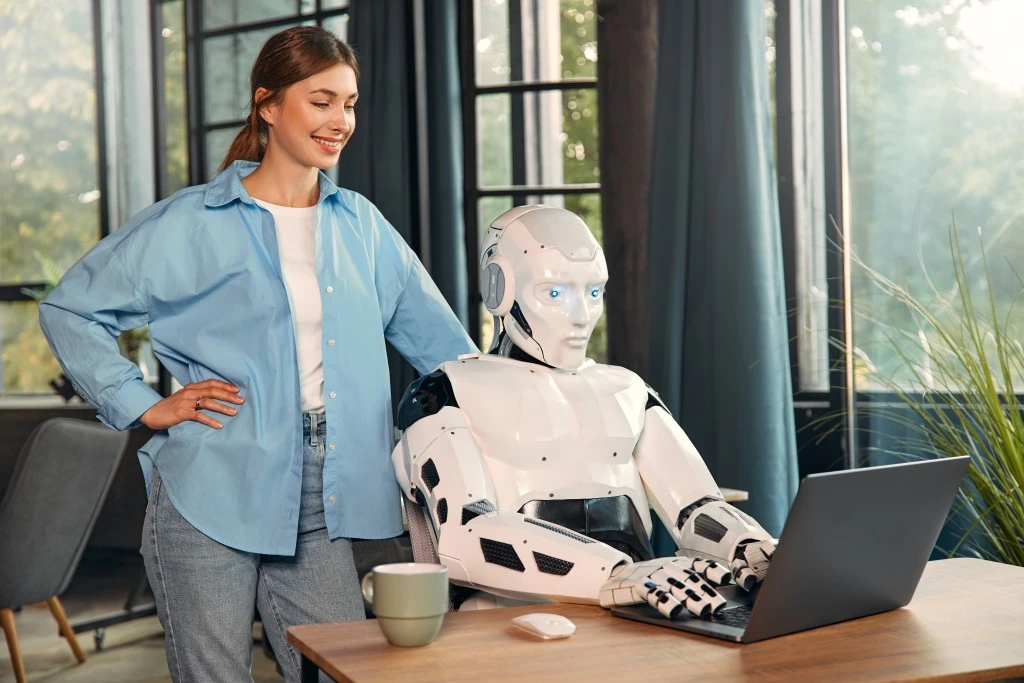The search engine optimization (SEO) landscape is undergoing a seismic shift, thanks to the rapid advancements in artificial intelligence (AI). Google and other search engines are integrating AI into their algorithms to provide users with more relevant, accurate, and personalized search results. As AI continues to evolve, businesses and digital marketers must adapt their SEO strategies to remain competitive.
In this blog, we will explore how AI is transforming SEO, the impact on search rankings, and actionable strategies to future-proof your online presence.
The Role of AI in Modern Search Engines
AI is playing a crucial role in shaping search engines in several ways:
- Understanding Search Intent – AI-powered algorithms like Google’s RankBrain analyze user behavior to determine the intent behind search queries, improving result accuracy.
- Natural Language Processing (NLP) – AI advancements in NLP, such as Google’s BERT and MUM updates, enable search engines to interpret conversational language more effectively.
- Automation of Ranking Factors – AI assesses website quality, backlinks, and content relevance at an unprecedented scale.
- Personalized Search Results – AI customizes search rankings based on user preferences, location, and past interactions.
- Voice and Visual Search Optimization – AI is driving the adoption of voice and image search, changing the way users find information online.
AI-Powered Search Algorithm Updates
Google and other search engines frequently roll out AI-driven updates to improve search quality. Here are some of the most influential AI-powered updates:
RankBrain
Introduced in 2015, RankBrain is an AI-based component of Google’s search algorithm that helps process search queries, especially those that are complex or ambiguous. RankBrain learns from user interactions to refine search results continuously.
BERT (Bidirectional Encoder Representations from Transformers)
Launched in 2019, BERT helps Google understand the context of words in a sentence, improving search relevance for natural language queries.
MUM (Multitask Unified Model)
Announced in 2021, MUM is 1,000 times more powerful than BERT. It understands and generates language across multiple languages and formats (text, images, video), making search results even more sophisticated.
Helpful Content Update
Google’s Helpful Content Update prioritizes content that provides real value to users rather than content designed purely for search rankings.
SpamBrain
SpamBrain is Google’s AI-driven spam detection system that identifies and penalizes spammy SEO tactics such as keyword stuffing and low-quality backlinks.
How AI is Reshaping SEO Strategies
Content Creation and Optimization
AI-powered tools like ChatGPT, Jasper, and SurferSEO help marketers create high-quality, optimized content faster. However, human oversight is essential to maintain authenticity and value.
Best Practices:
- Write high-quality, user-focused content that answers real queries.
- Use AI tools for keyword research and content structuring, but avoid over-relying on automation.
- Focus on E-E-A-T (Experience, Expertise, Authoritativeness, and Trustworthiness) to align with Google’s quality standards.
AI-Driven Keyword Research and Topic Discovery
AI tools like Semrush, Ahrefs, and Google’s Keyword Planner analyze vast datasets to provide keyword insights that align with user intent.
Best Practices:
- Target long-tail keywords that reflect natural conversational search.
- Use AI insights to identify content gaps and trending topics.
User Experience (UX) and Core Web Vitals
Google’s AI prioritizes websites that offer fast loading times, mobile-friendliness, and intuitive navigation.
Best Practices:
- Optimize website speed by compressing images and minimizing unnecessary scripts.
- Ensure your site is mobile-friendly and responsive.
- Improve interactivity by making CTAs (Call-to-Actions) clear and easy to engage with.
Voice Search Optimization
With the rise of AI-powered voice assistants like Siri, Alexa, and Google Assistant, optimizing for voice search is crucial.
Best Practices:
- Use conversational language and question-based queries in content.
- Optimize for featured snippets, as they are often used for voice search responses.
AI in Link Building and Backlink Analysis
AI-driven tools help analyze the quality of backlinks, identify link-building opportunities, and detect spammy links.
Best Practices:
- Focus on high-quality backlinks from authoritative websites.
- Use AI-powered backlink analysis tools to track and improve link-building efforts.
Visual and Image Search Optimization
Google Lens and AI-driven visual search are becoming more prominent, making image optimization an essential SEO factor.
Best Practices:
- Use descriptive alt text for images.
- Implement structured data to improve image search visibility.
- Optimize image file sizes for faster loading speeds.
The Future of AI in SEO: What to Expect
- More Personalized Search Results – AI will continue to refine search experiences based on user history, location, and behavior.
- Greater Importance of Multimedia Content – Video and image search will become more integrated with AI-powered search algorithms.
- Stronger Emphasis on User Experience – Websites offering the best UX will outperform those relying solely on keyword optimization.
- Advanced AI-Generated Content Detection – Google will become better at distinguishing between AI-generated and human-authored content, prioritizing authenticity.
How to Stay Ahead in AI-Driven SEO
- Adapt to AI-Powered Search Trends – Stay updated on AI developments in SEO and adapt your strategies accordingly.
- Leverage AI Tools Wisely – Use AI for insights, but always prioritize human creativity and expertise.
- Prioritize High-Quality, User-Focused Content – Avoid shortcuts and focus on delivering real value.
- Optimize for Emerging Search Trends – Prepare for voice, video, and image search optimizations.
- Monitor Algorithm Changes – Regularly track search engine updates and adjust your SEO tactics accordingly.
Conclusion: Embrace AI for SEO Success
Artificial intelligence is transforming the SEO landscape, making search engines smarter and more user-focused. To stay competitive, businesses must embrace AI-driven SEO strategies while prioritizing content quality, user experience, and ethical optimization practices.
Stay Ahead of the Curve with AI-Optimized SEO!
Need help navigating AI-driven search algorithms? Contact our SEO experts today for cutting-edge strategies that drive results!


0 Comments